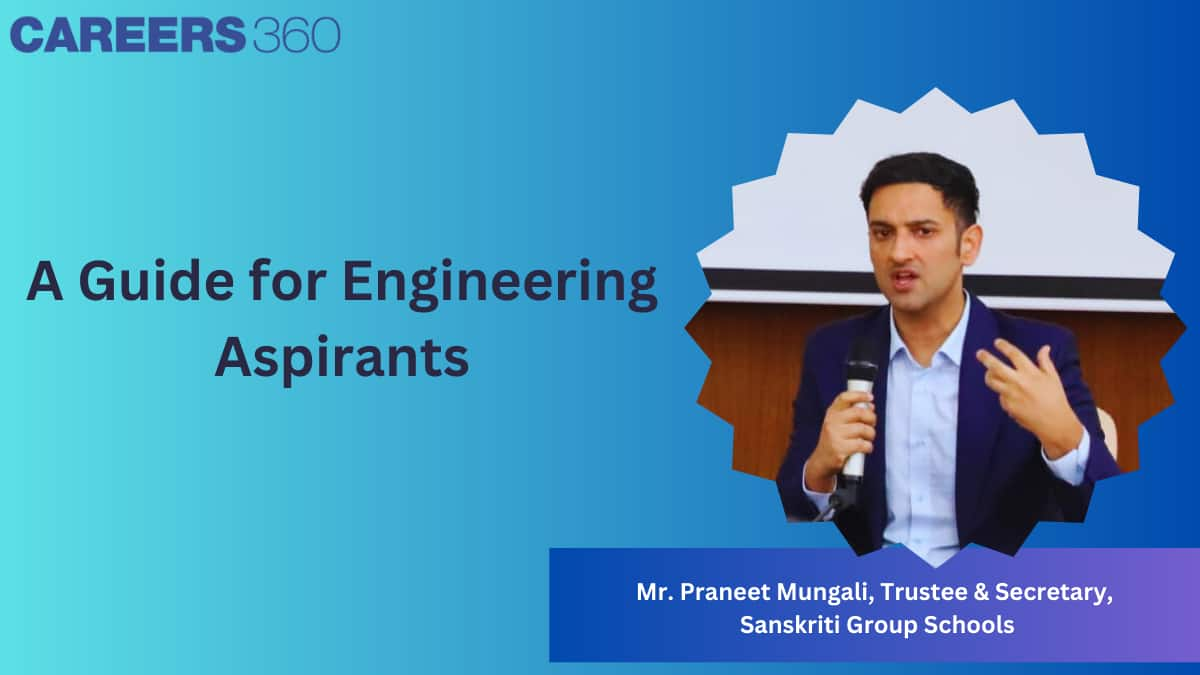Amity University-Noida B.Tech Admissions 2026
Among top 100 Universities Globally in the Times Higher Education (THE) Interdisciplinary Science Rankings 2026
Almost a decade ago, Prime Minister Narendra Modi expressed during his monthly discourse that he wants more and more students in India to pursue science and technology as their profession. His sentiments have held true and will continue to hold true for students in India. The importance of scientific education can be expressed in a simple sentence: if we settle for things we already know, progress will inevitably grind to a halt.

With India set to become the 3rd largest economy in a matter of a few years, growth will be premised on students who are focused on innovation, and inquiry in scientific domains. This is because we are witnessing new and emerging technologies coming up continuously, that will require students trained in scientific education to harness them. As we all know, we cannot stop the march of technology.
Therefore, it is important for students to also be cognizant of the type of courses they are considering applying for. This is particularly important for those students considering engineering so that they are aware of the opportunities after pursuing a course. No engineering branch is not future-ready. It is therefore an apt decision for any student to undertake rigorous education in science and engineering because their skillset will be applicable even as technologies evolve. That is why science is and will continue to be fundamental in enabling us to progress as a society.
Among top 100 Universities Globally in the Times Higher Education (THE) Interdisciplinary Science Rankings 2026
Last Date to Apply: 28th Feb | Ranked #43 among Engineering colleges in India by NIRF | Highest Package 1.3 CR , 100% Placements
Few advice for the students who are thinking of pursuing science -
To do well in science and engineering studies, students should remember that they will have to spend a lot of time outside of the classroom to study and explore their interests.
To understand more about different careers in STEM, spend time doing your own research by looking at books, articles, and other online sources.
Make sure you choose a course you also enjoy because otherwise, chances are high that you will not do well on it.
Research and find out what are the pre-requirements for different courses. There may be requirements related to previous education, marks, and acumen.
While also preparing yourself for college, it is also a good idea to seek a mentor and to build a relationship with them. A mentor can help you stay on track, and access opportunities outside of college.
When choosing a college, look at various factors such as its curriculum, faculty, and teaching methodology. Make sure the curriculum is up-to-date and aligns with industry needs.
It is also important to check other factors such as the location of the college, and placement records. The location of a college often determines the quantity of industry interaction opportunities, and placement records should align with your expectations.
Recognized as Institute of Eminence by Govt. of India | NAAC ‘A++’ Grade | Upto 75% Scholarships
98% Placement Record | Highest CTC 81.25 LPA | NAAC A++ Accredited | Ranked #62 in India by NIRF Ranking 2025 | JEE & JET Scores Accepted
On Question asked by student community
decent chances actually as home state quota seats are 50%. allotments will depend on the JEE rank and not percentile though. in 2025, for female supernumerary it closed at 9286 rank while for open gen it closed at 5573.
So, would advise to use this tool to check the probable
yes you will. Ususally the return is within 7 days i it has failed at the gateway level which it seems to be. Please wait. You will get the money back
Slim chances as in 2025 the closing rank was 118 for SPA Delhi for B.Arch. You will need to wait for the rank list to come in April before getting a better picture. Please check https://engineering.careers360.com/jee-main-college-predictor for the predictions.
Check out https://engineering.careers360.com/jee-main-rank-predictor to know the probable rank
Hi Smita Sharma,
With 47 percentile in JEE Mains 2026, you might get rank around 7,00,000 plus which is very high. Check the link below for the Best engineering colleges available for you based on yours percentile.
Link 1: https://engineering.careers360.com/colleges/list-of-engineering-colleges-in-pune-accepting-jee-main
Hey Abhinav!
You can start your JEE Preparation with ICSE. You can check How to Prepare for JEE Main 2026?- Study Plan and start you preparation.
Among top 100 Universities Globally in the Times Higher Education (THE) Interdisciplinary Science Rankings 2026
Recognized as Institute of Eminence by Govt. of India | NAAC ‘A++’ Grade | Upto 75% Scholarships
70th University Ranked by NIRF | 80th Engineering Rank by NIRF | Accredited by NBA and NAAC A+
Last Date to Apply: 28th Feb | Ranked #43 among Engineering colleges in India by NIRF | Highest Package 1.3 CR , 100% Placements
Highest CTC 44.14 LPA | UGC Approved | 1600+ Recruiters | 100% Placement
NAAC A++ Grade | Recognized as Category-1 Deemed to be University by UGC | 41,000 + Alumni Imprints Globally